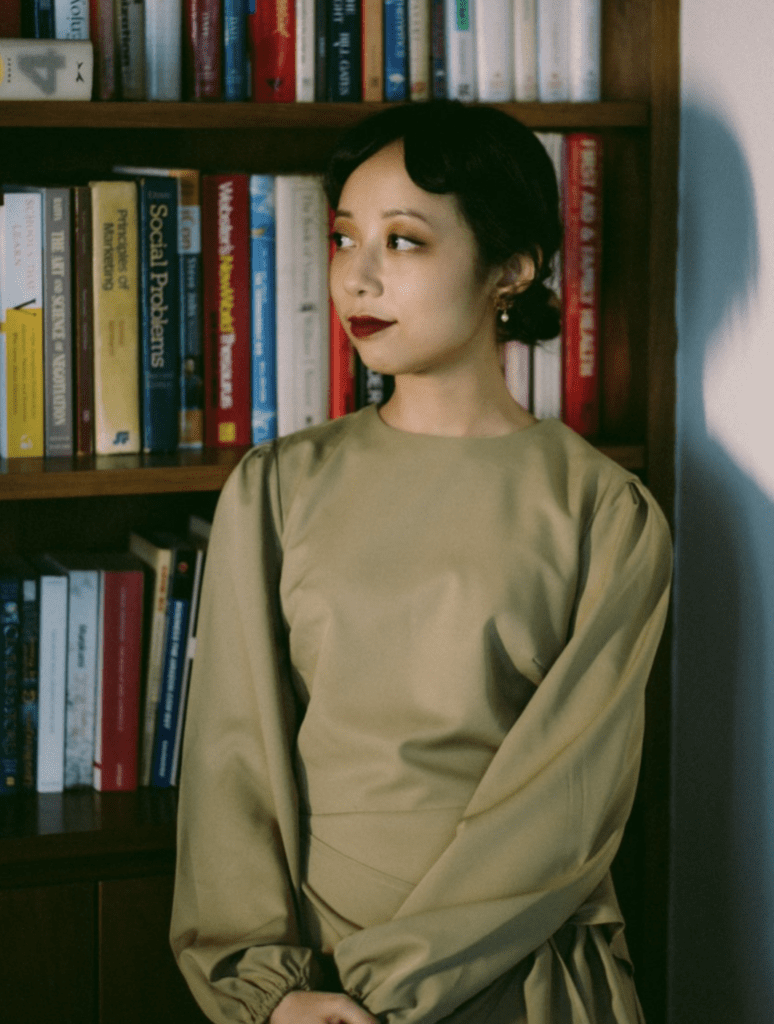It is within this context that we find a captivating intersection between pop culture and profound reflections on womanhood, all encapsulated in a thought-provoking dialogue. A conversation, one might argue, that rivals the eloquence of Ruby’s declaration in Netflix’s “Anne With An E”: “How I love being a woman.”
This dialogue unfolds in a short but potent interview, where the perceptive and articulate MulaZine writer, Amelia Natasha, engages Shari Jaffri, the creative mind behind the enigmatic persona known as “Tragikomedi.” It is a conversation that delves deep into the nuanced aspects of feminism, the dynamics of contemporary art, and the identity of a digital-age creator.
Before embarking on this insightful journey, Amelia inquires about the essence of “Tragikomedi,” asking, “who is Tragikomedi?” To this, Shari responds with profound simplicity, stating, “Tragikomedi is me, and I am her.” The name itself encapsulates the essence of life as a blend of tragedy and comedy, a juxtaposition that mirrors the complexities of existence.
Shari’s choice of the name “Tragikomedi” draws from the literary genre of tragicomedy, a genre that artfully intertwines contrasting emotions. She eloquently explains how this name symbolizes the coexistence of life’s highs and lows, a reflection of her own creative journey.
The conversation then takes a poignant turn as Shari delves into the influence of her upbringing on her artistic expression. She reveals how her childhood introversion and keen observation of human interactions in her hometown of Petaling Jaya continue to shape her work. Her art becomes a canvas for reminiscing about neighborhood nuances and shared experiences, a reflection of her personal journey intertwined with her community.
Shari emphasizes the organic nature of her creative process, wherein her immediate surroundings serve as the wellspring of inspiration. Her art becomes a means of reflection and meditation on the world around her, providing insight into her evolving perspective.
Amelia’s probing questions then lead Shari to reflect on how her art becomes an outlet for processing personal experiences. Shari shares a relatable instance of using her art to navigate the emotional turmoil of a pandemic-induced breakup, touching upon universal themes of avoidance and detachment.
The conversation transitions gracefully into the complexities of success within the Malaysian art scene. Shari candidly addresses the superficial stereotypes that often plague discussions of artistic success, focusing on follower counts and industry connections. She reflects on her journey of learning to navigate social media and develop resilience against negative comments.
The thematic heart of Shari’s recent work, centered around community, becomes the focal point of the conversation. Shari elucidates how she balances the needs of her community with her own creative vision, striving to create art that resonates with shared experiences while grappling with the challenges of revealing her innermost thoughts.
The linguistic choices in Shari’s comedy pieces, delivered in Manglish, emerge as another layer of her connection with her audience. She explains how this language allows for a more conversational and relatable tone, fostering a uniquely Malaysian connection while also reaching a global audience.
As the interview approaches its conclusion, Shari’s involvement in Monki’s “Seven Sisters Salute Sisterhood” campaign comes into focus. She expresses gratitude for the opportunity to collaborate with Monki and celebrates the platform it provides for women creators in the local art scene. Shari underscores the importance of community and the profound impact of uplifting fellow artists.
In the closing moments of this enriching conversation, both interviewer and interviewee express gratitude for the dialogue they’ve shared, a testament to the power of meaningful discourse in the realm of contemporary art and empowerment. Shari’s words, much like her art, continue to inspire and connect with a diverse audience, reaffirming the beauty of celebrating womanhood and togetherness in today’s ever-evolving landscape.

